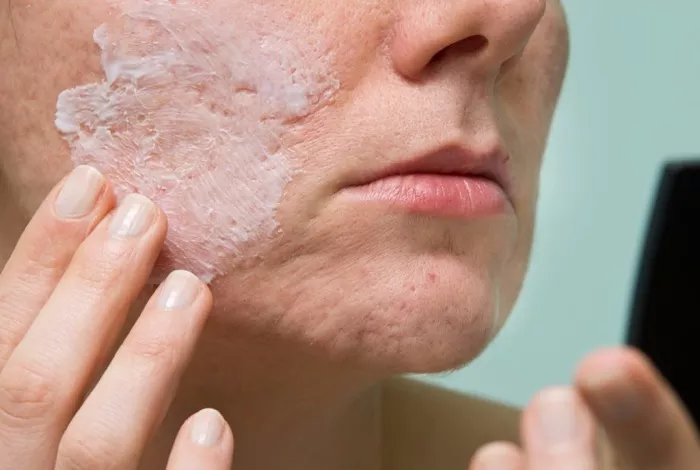Allergic reactions are a common occurrence, affecting millions of people worldwide. They can be triggered by various allergens, such as certain foods, medications, insect stings, pollen, and pet dander. While most allergic reactions are mild and short-lived, some can be severe and even life-threatening. Understanding the duration and progression of allergic reactions is crucial for managing and seeking appropriate medical attention. This article aims to provide a comprehensive guide on how long allergic reactions last, the factors that influence their duration and some managing approaches.
SEE ALSO: Unveiling Allergies: Common Symptoms & Strategies
Types of Allergic Reactions
Allergic reactions are classified into four main types:
Type I (Immediate Hypersensitivity): These reactions occur within minutes of exposure to an allergen and involve the release of histamine, causing symptoms like hives, itching, and anaphylaxis.
Type II (Cytotoxic Reactions): This type involves antibodies attacking cells, leading to conditions like hemolytic anemia and transfusion reactions.
Type III (Immune Complex Reactions): These reactions involve the formation of immune complexes, leading to inflammation and tissue damage, as seen in conditions like systemic lupus erythematosus.
Type IV (Delayed Hypersensitivity): This type takes hours to days to develop and is associated with skin reactions, such as contact dermatitis.
Duration of Allergic Reactions
The duration of allergic reactions can vary significantly depending on several factors, including the type and severity of the allergen, individual sensitivity, and the body’s immune response. Allergic reactions can range from mild and short-lived to severe and prolonged. Here’s a closer look at the duration of different types of allergic reactions:
1. Acute Allergic Reactions
These are immediate hypersensitivity reactions, such as hives, itching, and sneezing, that occur shortly after exposure to the allergen. The duration of acute allergic reactions can be relatively short, typically lasting for a few hours to a few days. For example:
Hives (Urticaria): Hives may appear suddenly and last for a few hours to a day or two, but they can also come and go over several days if the allergen exposure continues.
Allergic Rhinitis (Hay Fever): Symptoms like sneezing, runny or stuffy nose, and itchy eyes can persist for a few hours to a few days, depending on allergen exposure and individual response.
SEE ALSO: Understanding Hay Fever: Causes, Symptoms, and Treatment
Mild Food Allergies: Mild allergic reactions to foods, like itching or a rash, usually subside within a day or two after avoiding the trigger.
2. Anaphylaxis
Anaphylaxis is a severe and potentially life-threatening allergic reaction that requires immediate medical attention. The duration of anaphylactic reactions can vary, but without intervention, symptoms can persist for several hours. In some cases, symptoms may resolve temporarily after treatment but recur in waves over the course of a few days.
3. Chronic Allergic Reactions
Some allergic reactions may become chronic, lasting for weeks, months, or even longer. Chronic allergic conditions are often associated with ongoing exposure to allergens or triggers, leading to persistent symptoms. Common examples include:
Allergic Rhinitis (Chronic): If the allergen exposure continues, hay fever symptoms may persist throughout an entire allergy season or year-round.
Asthma: In individuals with allergic asthma, symptoms like wheezing and shortness of breath can be recurrent and may last for extended periods, especially if the asthma is not well-controlled.
Eczema (Atopic Dermatitis): Eczema flare-ups can be chronic in nature, with skin inflammation and itching lasting for weeks or even months during periods of exacerbation.
4. Delayed Allergic Reactions
Delayed hypersensitivity reactions, like contact dermatitis from skin exposure to allergens such as poison ivy or certain metals, can take several hours to days to develop. These reactions may persist until the skin’s immune response subsides and the skin heals.
It is essential to note that individual responses to allergens can vary significantly. Some people may experience rapid resolution of symptoms with minimal discomfort, while others may have more prolonged and severe reactions.
Factors Affecting Duration of Allergic Reactions
The duration of allergic reactions can be influenced by various factors, including the type and severity of the allergen, individual sensitivity, the body’s immune response, and the presence of other underlying health conditions. Understanding these factors is crucial for managing allergic reactions effectively. Here are the key factors that influence the duration of allergic reactions:
1. Type of Allergen
The type of allergen plays a significant role in determining the duration of allergic reactions. Some allergens may trigger immediate and short-lived reactions, while others can lead to chronic and persistent symptoms. For example:
Type I Allergens: Allergens that cause immediate hypersensitivity reactions, like pollen, pet dander, insect stings, and certain foods, may lead to acute allergic reactions with relatively short durations. However, severe allergens like certain medications can also trigger prolonged and severe allergic reactions, including anaphylaxis.
Type IV Allergens: Allergens that cause delayed hypersensitivity reactions, such as poison ivy or metals in contact dermatitis, can lead to more prolonged skin reactions that persist until the skin’s immune response subsides.
2. Individual Sensitivity
Each person’s immune system responds differently to allergens. Some individuals may have a heightened sensitivity to specific allergens, leading to more intense and longer-lasting allergic reactions. On the other hand, others may have a milder response and experience quicker resolution of symptoms.
3. Underlying Health Conditions
The presence of certain underlying health conditions can influence the duration of allergic reactions. For instance:
Asthma: Individuals with asthma may experience more prolonged and severe allergic reactions due to the already existing inflammation in the airways, making them more sensitive to allergens.
Chronic Allergic Conditions: Allergic conditions like chronic rhinitis (hay fever) or eczema can lead to ongoing symptoms if allergen exposure is continuous, resulting in more prolonged reactions.
4. Treatment and Intervention
Timely and appropriate treatment can significantly impact the duration of allergic reactions. The following interventions can help shorten the duration of allergic reactions:
Antihistamines: Over-the-counter or prescribed antihistamines can alleviate symptoms like itching, sneezing, and hives, leading to quicker resolution of mild allergic reactions.
Epinephrine: In the case of severe allergic reactions, such as anaphylaxis, the prompt administration of epinephrine through an auto-injector (EpiPen) can be life-saving and help shorten the duration of symptoms.
Corticosteroids: In severe and persistent allergic reactions, corticosteroids may be prescribed to reduce inflammation and speed up symptom relief.
5. Chronic Exposure
Repeated and prolonged exposure to allergens can lead to chronic allergic reactions. For example, individuals with allergic asthma may experience persistent symptoms if they are exposed to triggers like cigarette smoke or air pollution regularly.
6. Cross-Reactivity
Cross-reactivity occurs when an individual is allergic to one substance, but their immune system also reacts to other substances with similar protein structures. This phenomenon can extend the duration of allergic reactions if the person is exposed to multiple cross-reactive allergens.
Managing Allergic Reactions
Managing allergic reactions involves a combination of prevention, prompt intervention, and medical treatment. Proper management is essential to alleviate symptoms, prevent complications, and improve the overall quality of life for individuals with allergies. Here are key strategies for managing allergic reactions effectively:
1. Identify and Avoid Triggers
The first step in managing allergies is identifying the specific allergens that trigger the reactions. Keeping a record of symptoms and possible triggers can help pinpoint the culprits. Once identified, take proactive steps to avoid exposure to these allergens. Common allergens include pollen, dust mites, pet dander, certain foods, insect stings, and medications.
2. Medication
Over-the-counter and prescription medications can provide relief from allergy symptoms. These may include:
Antihistamines: Block the effects of histamine, reducing symptoms like sneezing, itching, and hives.
Decongestants: Relieve nasal congestion and sinus pressure.
Nasal Corticosteroids: Reduce inflammation and alleviate symptoms of allergic rhinitis.
Eye Drops: Provide relief from itchy and watery eyes caused by allergic conjunctivitis.
It is crucial to follow the advice of a healthcare professional when using medication and to be aware of potential side effects.
3. Allergy Shots (Immunotherapy)
For individuals with severe or persistent allergic reactions, allergen immunotherapy, commonly known as allergy shots, may be recommended. This treatment involves regular injections of small amounts of specific allergens to desensitize the immune system over time. Immunotherapy can significantly reduce the severity and frequency of allergic reactions, especially for allergic rhinitis and insect sting allergies.
4. Emergency Preparedness
For individuals with a history of severe allergic reactions or anaphylaxis, it is essential to be prepared for emergencies. Carry an epinephrine auto-injector (EpiPen) if prescribed by a healthcare professional and know how to use it properly. Always have an emergency action plan in place and share it with family members, friends, and coworkers.
5. Reduce Indoor Allergens
Taking steps to reduce indoor allergens can help manage allergic reactions, especially for individuals with allergic rhinitis or asthma:
Use allergen-proof covers for mattresses and pillows to prevent dust mites.
Regularly clean carpets, curtains, and upholstery.
Keep humidity levels low to prevent mold growth.
Use air purifiers with HEPA filters to trap airborne allergens.
Minimize exposure to tobacco smoke and other irritants.
6. Monitor Pollen Levels
For individuals with pollen allergies, keeping track of pollen levels can help plan outdoor activities. Avoid spending extended periods outdoors when pollen counts are high, especially during peak pollen seasons.
7. Educate Family and Friends
Ensure that family members, friends, teachers, and coworkers are aware of your allergies and know how to recognize and respond to severe reactions. Communication is crucial to ensure quick intervention in case of emergencies.
8. Consult an Allergist
If you suspect you have allergies or experience recurrent and severe allergic reactions, consult an allergist or immunologist. These specialists can perform allergy testing to identify specific triggers and develop a personalized management plan.
SEE ALSO: How to Treat Allergic Reactions to Bug Bites: A Comprehensive Guide
Conclusion
Allergic reactions can vary widely in duration and severity. While most are short-lived and mild, some can be severe and require immediate medical attention. Understanding the factors influencing the duration of allergic reactions and proper management strategies is essential for individuals with allergies. If you suspect that you have allergies or experience severe allergic reactions, consult an allergist or healthcare professional for proper diagnosis and guidance. With proper care and avoidance of triggers, individuals with allergies can lead healthy and fulfilling lives.
[inline_related_posts title=”Related Topics” title_align=”left” style=”list” number=”3″ align=”none” ids=”415,783,641″ by=”categories” orderby=”rand” order=”DESC” hide_thumb=”no” thumb_right=”no” views=”no” date=”yes” grid_columns=”1″ post_type=”” tax=””]

































